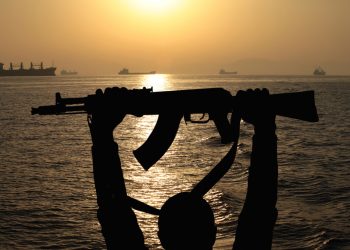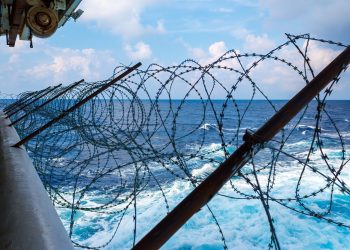A code of conduct would help ease tensions in the area
 The United States on Tuesday renewed its call for the crafting of a legally-binding code of conduct in the disputed West Philippine Sea (also called South China Sea) amid the ongoing naval standoff between the Philippines and China at the Panatag (Scarborough) Shoal.
The United States on Tuesday renewed its call for the crafting of a legally-binding code of conduct in the disputed West Philippine Sea (also called South China Sea) amid the ongoing naval standoff between the Philippines and China at the Panatag (Scarborough) Shoal.
Joseph Yousang Yun, State Department Principal Deputy Assistant on Security for East Asia and the Pacific, said this was conveyed by the US to senior officials of Association of South East Asian Nations (ASEAN) in Manila as both sides discussed wide-raging bilateral and regional issues that included maritime security and the West Philippine Sea.
A code of conduct among Asian nations with overlapping claims to the resource-rich sea, Yun said, would help ease tensions in the area.
“As far as the US is concerned, we stated that we very much look forward to ASEAN and China working on the code of conduct which I think will be helpful for everyone,” Yun, Washington’s representative to the 25th ASEAN-US Dialogue, told reporters.
Yun said the impasse between the Philippines and China at Panatag Shoal was not discussed in the meeting but noted that both sides hoped for a peaceful resolution to any disputes and agreed to work together towards regional stability.
Competing claims to the vast waters, believed to be sitting atop vast oil and gas deposits, by the Philippines, China, Malaysia, Vietnam, Brunei and Taiwan, have sparked violent confrontations in the past, sparking fears it could be Asia’s next potential flashpoint for war.
China claims the West Philippine Sea (South China Sea) nearly in its entirety, including areas that overlap with the Philippines’ territorial waters.
US national interest
The US is not a party to the territorial row but has declared that it is in its national interest to ensure that the conflicts are resolved peacefully.
Washington also said it wants to ensure the freedom of navigation in the West Philippine Sea amid the territorial problem.
Beijing warned the US to stay away from the disputes, which it described as an Asian issue that should not involve outsiders like Washington.
A 2002 agreement signed between ASEAN and China calls on all claimants to exercise restraint and stop new occupation in the disputed area.
However, its non-binding nature and lack of provision to sanction misbehaving claimants, renders the accord useless against aggression.
The Philippines and China have been locked in a maritime standoff at the Panatag Shoal since April 10, one of the largest territorial crisis in the West Philippine Sea in recent years.
It erupted when Philippine authorities spotted several Chinese fishermen in the shoal, which Manila said is part of its territory. The Philippines was about the arrest the fishermen but was prevented by two Chinese patrol ships.
Source: GMA News
































































